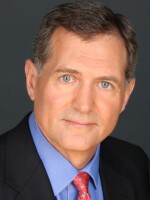SCOTT DETROW, HOST:
The first day of an Israel-Hamas cease-fire was filled with drama and some tense moments. Yet the temporary truce did take hold. And as planned, Israeli hostages and Palestinian prisoners were freed. In fact, a surprise development resulted in more releases than expected. President Biden weighed in, saying he liked what he saw.
(SOUNDBITE OF ARCHIVED RECORDING)
PRESIDENT JOE BIDEN: It's only a start, but so far, it's gone well.
DETROW: We're joined now by two NPR correspondents in the Middle East. Greg Myre is in Tel Aviv, and Brian Mann is in the West Bank city of Ramallah. Greg, let's start with you. How did the release of the Israeli hostages play out?
GREG MYRE, BYLINE: Yeah, it was a pretty complicated arrangement with lots of moving parts. Now, Hamas released 13 Israeli hostages, women and children, as expected. And they were freed in southern Gaza. The Red Cross then drove them across the border into Egypt and then into southern Israel. And then they went to a military airbase for an initial checkup. And now some of them have already been flown to hospitals in the Tel Aviv area for more extensive checkups on both their medical and emotional condition after this seven-week ordeal. Those freed were the young and the old, four children age 9 or younger. One woman was 85. Five more women were in their 70s. Twelve of the 13 came from the same kibbutz, Nir Oz, which was overrun by Hamas on October 7. And they were believed to be held by Hamas in the tunnels in Gaza and may have very limited knowledge of what happened that day. Kids lost parents. Many lost friends and relatives. So after this traumatic ordeal, they may face some additional shocks.
DETROW: Yeah. I mean, Hamas freed additional hostages that were not expected to be released today. What can you tell us about that?
MYRE: So Hamas also released 10 citizens of Thailand and one from the Philippines. We knew that foreign nationals, many of them agricultural workers, were being held. But we didn't know they were going to be released today. So this came as a surprise. They were freed along with the Israelis. But more foreign nationals are still being held, including several Americans.
DETROW: I'm going to go now to Brian Mann, who's in the West Bank. Brian, Israel released an even larger number of Palestinian prisoners. What did you see today?
BRIAN MANN, BYLINE: Well, this prisoner release, Scott, just sparked a massive outpouring of people here in Ramallah. There were protests and gatherings in different parts of the city through the day. This afternoon, I was near the checkpoint where these young Palestinians, all of them under the age of 19, were handed over. It was pretty tense, with Israelis firing tear gas into the crowd. The International Red Crescent says one young Palestinian was injured. And then I want you to hear what it sounded like as the first young prisoners, all Palestinian teenage boys - as they came into one of the main squares in the heart of Ramallah.
UNIDENTIFIED GROUP: (Chanting in non-English language).
UNIDENTIFIED PERSON: (Chanting in non-English language).
MANN: And what's remarkable there is that a lot of the chanting, a lot of flags were in praise of Hamas and its leaders, people chanting support for the men who carried out that October 7 terror attack. That violence, of course, left 1,200 Israelis dead. But it's seen by many here as an act of resistance against the Israeli occupation.
DETROW: Yeah. And, I mean, we've been focused so much on the war in Gaza. How would you describe the atmosphere in the West Bank where you are?
MANN: It's such a volatile chemistry, Scott. There's rage and frustration with Israel's occupation, which has gone on for years. So many Palestinians have been arrested or detained just in the last few weeks since the October 7 terror attack. People here are also outraged by the violence they've seen unfolding in Gaza, which, of course, has killed thousands of civilians and many children there. But then, along with all that outrage, there were also moments of real tenderness, you know, families being reunited here. I spoke to Walaa Othman, who's 36. And she was celebrating the return of her 16-year-old son, Laith.
WALAA OTHMAN: (Non-English language spoken).
MANN: She told me she's just overjoyed, so happy to see her boy after the nine months he was detained by Israel. She said he was taken into custody for throwing stones at Israeli soldiers. Israel, of course, views that as an act supporting terrorism. But people here, including his mom - they see it as an act of resistance.
DETROW: So, Brian, both the Israelis and Palestinians delivered today on their obligations, and that was not a given. Does that mean that we should expect the next few days to go the same way?
MANN: You know, the big thing I heard is a lot of fear here about violence returning to Gaza after the four-day pause that's planned. People here in the West Bank think there's a risk of more violence here, as well. But today was promising - that at least this process so far seems to be playing out, if not smoothly, at least successfully. But as you've been hearing, it was pretty chaotic. I think we're going to have to watch this day by day to see what happens.
DETROW: Yeah. Going to go back to Greg Myre now. Is this temporary truce helping with the humanitarian crisis in Gaza?
MYRE: Well, it certainly helped today, Scott. It looks like more aid entered Gaza today than any day since the war broke out seven weeks ago. The United Nations says that 200 aid trucks crossed from neighboring Egypt into southern Gaza with water, food and medicine. This also included several trucks with fuel and cooking gas, two items that are desperately needed. So this certainly helps, but it's still just a small fraction of what Gaza needs. And again, this is a temporary pause - lasts four days. It could be extended for up to maybe as long as 10 days. But if that's the only period that this additional aid gets into Gaza, then it's by no means a permanent solution. There's more than 2 million people in the territory. Virtually everyone needs some sort of assistance.
DETROW: Greg, I'm going to end with an optimistic question. Does this breakthrough today that we saw with prisoner exchange, hostage exchange, with the truce holding, for the day at least - does this suggest that we could see additional negotiations toward a longer-term cease-fire or even an end to the war?
MYRE: So, Scott, I think that still seems a long way off at this point. The Israeli leader, Benjamin Netanyahu, continues to stress that his goal is the complete destruction of Hamas. And you certainly have a long way to go. The Israelis are controlling much of northern Gaza, but they haven't gone into southern Gaza on the ground. So we could see more heavy fighting there. Netanyahu says that Israel is just not interested in a long-term cease-fire and is promising, essentially, that the war will continue. President Biden and his remarks this afternoon said that the Israeli goal of eliminating Hamas was indeed legitimate. And for its part, Hamas still holds more than 200 hostages. This includes Israeli men and soldiers. And the militant group knows this gives them some leverage, and it is likely to make very, very tough demands when it comes to this group of hostages.
DETROW: That was NPR's Greg Myre in Tel Aviv, as well as Brian Mann in the West Bank. Thanks to both of you. Transcript provided by NPR, Copyright NPR.
NPR transcripts are created on a rush deadline by an NPR contractor. This text may not be in its final form and may be updated or revised in the future. Accuracy and availability may vary. The authoritative record of NPR’s programming is the audio record.




